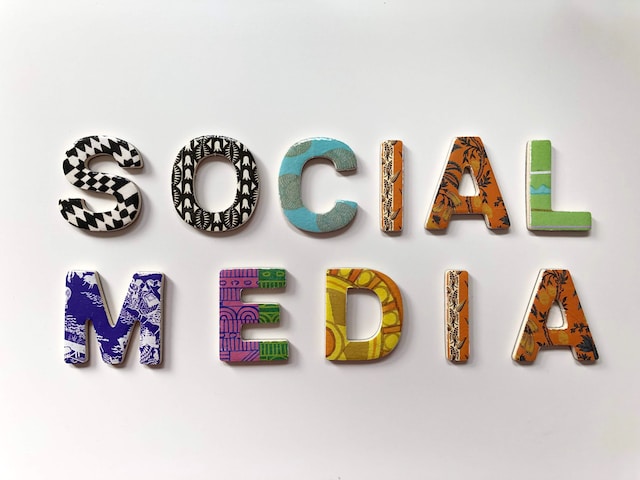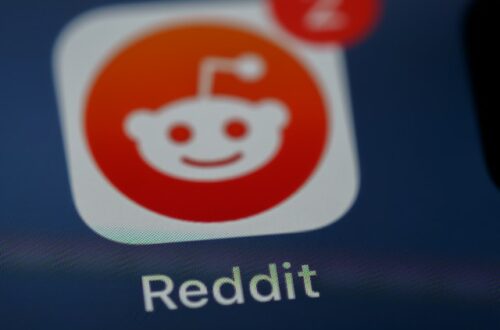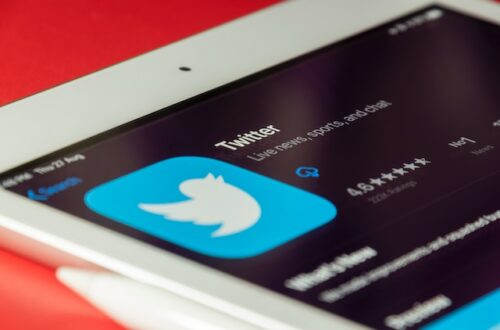In today’s digital age, social media has become deeply ingrained in our daily lives.
We use various social media platforms to connect with friends and family (even strangers), share our thoughts and experiences, and keep up with the latest news and trends. It’s even a place we go to for a bit of a break, to watch a funny video or zone out for 5 minutes.
However, along with the benefits of social media, there are also potential drawbacks that can impact our mental health.
The purpose of this article is to raise awareness of the impact of social media on mental health. It aims to provide an understanding of how social media usage can affect our psychological well-being and highlight both the positive and negative effects it can have.
By examining the potential risks and benefits, we can navigate the digital world with greater awareness and make informed decisions about our social media usage.
What Is Social Media?
Social media refers to the online platforms and websites that allow individuals to create and share content, as well as interact with others through virtual networks. It serves as a digital space for people to connect, communicate, and share information, ideas, and experiences.
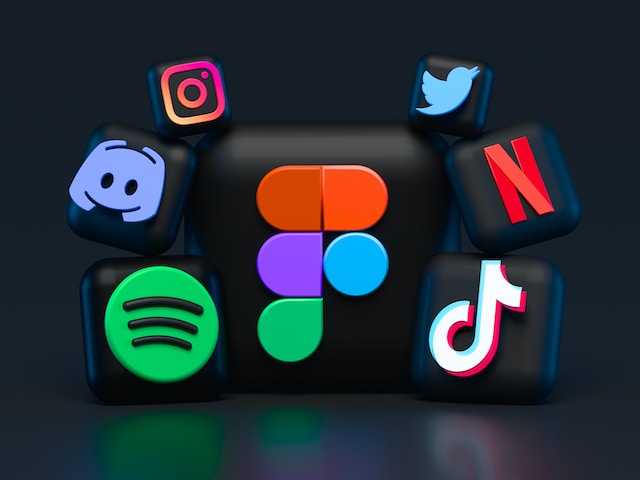
There are various types of social media platforms, each designed with different purposes and functionalities. Some popular examples include Facebook, Instagram, Twitter, LinkedIn, and Snapchat.
These platforms have gained immense popularity and have millions of active users worldwide.
Why Do People Use Social Media?
Several factors contribute to the popularity and engagement of these platforms.
- One of the primary drivers of social media use is the desire for social interaction.
- Another factor is the need for information sharing. Social media platforms have become powerful tools for disseminating news, updates, and information quickly.
- Entertainment is another key driver of social media use. Platforms like Instagram, Facebook, and TikTok offer a variety of content formats, including photos, videos, and viral challenges, which provide users with an escape from their daily routines and offer them entertainment value.
- Lastly, personal connection is a significant motivator for social media engagement. Social media platforms offer a space where individuals can express themselves, share their thoughts and emotions, and receive feedback and support from their social contacts.
Also Read: Is 300 Mbps Good For Gaming? Evaluating Internet Speed For Gamers
How Different Generations Use Social Media
Although the reasons why people use social media are fairly clear, the way it is used by different generations is different:
- Baby Boomers, born between 1946 and 1964, are the oldest generation on social media. They tend to use platforms like Facebook and LinkedIn to connect with family, friends, and colleagues. Their main motivations for using social media are to maintain relationships, share family updates, and stay informed about current events (or, if you are like my Mum, share quizzes and inspirational quotes…)
- Generation X, born between 1965 and 1980, is known for being adaptable to technology. They use platforms like Facebook, Instagram, and Twitter for a mix of social interaction and information sharing. They also value privacy and tend to have a more cautious approach to social media compared to younger generations.
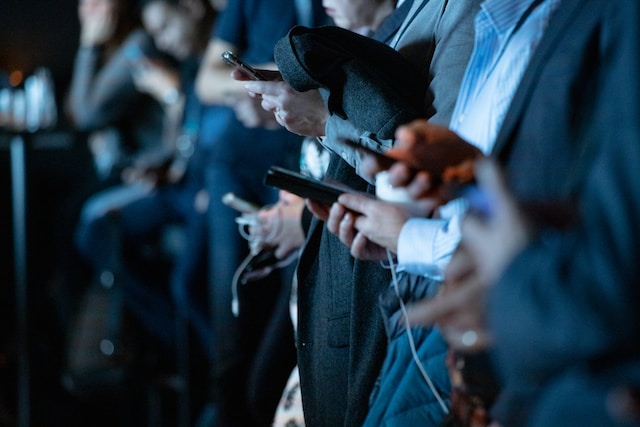
- Millennials, born between 1981 and 1996, are digital natives and avid social media users. They prefer platforms like Instagram, Snapchat, and TikTok. Millennials use social media for self-expression, staying connected with friends, and being up-to-date with the latest trends and pop culture. They are the most likely to engage in social media activism and support causes they care about.
- Generation Z, born between 1997 and 2012, is the first generation to grow up entirely with social media. They are active on platforms like Snapchat, Instagram, and TikTok. Gen Z uses social media as a primary means of communication, self-expression, and entertainment. They are more likely to engage with influencers and value authenticity in social media content.
The Benefits Of Social Media
The benefits of social media are numerous and diverse, impacting various aspects of our mental health and well-being.
- Social media allows us to stay connected with friends and family, regardless of distance, enabling us to maintain meaningful relationships and reduce feelings of isolation and loneliness.
- Additionally, social media platforms provide avenues for self-expression, allowing individuals to showcase their talents, creativity, and unique perspectives.
- It also serves as a forum for community support and encouragement, connecting individuals who share similar experiences and challenges.
- Lastly, social media provides a space for social activism and raising social awareness, enabling individuals to participate in important conversations and mobilise for positive change.
Overall, the pros of social media contribute to enhancing social connections, self-expression, knowledge acquisition, community support, and fostering social change.
Also Read: Is Gaming A Sport? Debunking The Myths And Defining Competitive Gaming
The Negative Aspects Of Social Media
The negative impact of social media on mental health cannot be ignored.
While social media platforms offer various benefits, they also present potential risks and negative effects on individuals’ well-being.
- Excessive social media usage can lead to social anxiety, feelings of inadequacy, and mental health challenges.
- The constant exposure to highlight reels of others’ lives can create unrealistic expectations and feelings of dissatisfaction.
- The rise of online harassment and cyberbullying has also contributed to negative experiences and mental health concerns.
- Furthermore, social media addiction can consume a significant amount of time and attention, detracting from real-life social interactions and potentially worsening symptoms of anxiety and other mental illnesses.
Several qualitative studies have highlighted the adverse impact of social media on mental health, emphasising the need for awareness and appropriate measures to mitigate these negative effects.
The impact on mental health deserves further investigation, so read on.
Challenges With Social Media For Mental Health
The constant use of social media platforms can lead to negative experiences and potential risks that can impact our mental well-being.
From feelings of inadequacy and social anxiety to addiction and unrealistic expectations, exploring the pros and cons of social media on mental health is crucial in understanding the impact it has on our overall well-being.
Signs That Social Media Is Affecting Your Health
Social media has become an integral part of our daily lives, connecting us with friends, family, and a global community. However, it is important to be aware of the signs that indicate social media may be negatively affecting our mental health.
- Increased anxiety is a common symptom experienced by individuals who spend excessive time on social media platforms.
- Additionally, social media usage has been linked to sleep disturbances and poor concentration. The blue light emitted by screens affects our sleep hormone production, leading to difficulty falling asleep and poorer quality of sleep. This lack of rest can have detrimental effects on our mental health, as sleep is crucial for proper cognitive function and emotional regulation.
- For those with pre-existing mental health conditions, such as anxiety or depression, social media can exacerbate symptoms. Constant exposure to filtered images and unrealistic expectations may reinforce negative thought patterns and increase feelings of sadness or worthlessness.
- Moreover, social media opens the gateway for low self-esteem and cyberbullying, with individuals experiencing online harassment and negative experiences. This cyberbullying can increase the risk of developing or worsening mental health conditions.
Setting boundaries, limiting screen time, and prioritizing self-care activities can help maintain a healthy relationship with social media while safeguarding our mental well-being.
Also Read: What Is Packet Loss In Gaming? Causes, Effects, And Solutions
How To Protect Mental Health On Social Media
While social media can have negative effects and lead to mental health issues, it is still possible to protect and maintain positive mental well-being while using these platforms.
By being aware of potential risks and implementing healthy habits, individuals can navigate social media in a way that promotes mental health.
Avoid Cyberbullying

Also Read: What Is The Best Ethernet Cable For Gaming?
Here are some steps on how to avoid cyberbullying on social media:
- Adjust privacy settings: Regularly review and update your privacy settings on social media platforms. Limit who can see your posts, photos, and personal information to trusted friends and family members.
- Be cautious when sharing personal information: Avoid sharing sensitive personal information, such as your home address or phone number, publicly on social media.
- Block and unfollow users: If you encounter cyberbullying, block or unfollow the individuals involved.
- Report incidents: Most social media platforms have reporting systems in place to address cyberbullying. If you experience or witness cyberbullying, report the incidents to the platform administrators.
Recognising and reporting cyberbullying incidents is crucial because it helps protect not only yourself but also others who may be targeted. By taking steps to address online harassment, we contribute to creating a safer and more inclusive digital environment.
Tips For Keeping Social Media a Positive Influence On Your Life
Social media can be a powerful tool for positive connection and support, offering numerous benefits for mental health and well-being.
One of the key advantages is the ability to connect with like-minded individuals who share similar interests and experiences via online groups. This sense of belonging can provide a strong emotional support system, reducing feelings of isolation and loneliness.
Also Read: Is Esports A Sport? The Debate, Recognition, And Evolution Of Competitive Gaming
To protect our mental health, it is crucial to practice mindfulness in our social media usage. By consuming positive content, and prioritising offline connections, we can navigate the online world in a way that promotes well-being and emotional balance.
Setting boundaries on social media usage is also essential for protecting our mental health. By setting limits on the time we spend on social media and the interactions we have with others on these platforms, we can create a healthier relationship with technology and promote a better balance in our daily lives.
Taking A Break From Social Media
This exploration on the pros and cons of social media on mental health highlights both the potential benefits and drawbacks of its use, but the net result will be different for everyone.
On one hand, social media provides opportunities for social interaction, connection, and support from online communities. On the other hand, excessive use of social media can lead to negative effects on mental health, such as social anxiety, feelings of inadequacy, and the risk of online harassment.
For some people, the benefits will outweigh the negative stuff, for others it will be the opposite.
Whichever side you land on, it is important to remember that social media should not be a substitute for real-life interactions and that mental health concerns should be addressed by seeking professional help when needed.
If you feel it is having a negative impact on you overall, you should just take a break.
Set your accounts to dormant (or delete them if you like) and just stop using it for a while until you feel better. You might want to give it another go and you might not, but that period away will likely be very telling in how social media has been affecting you.
